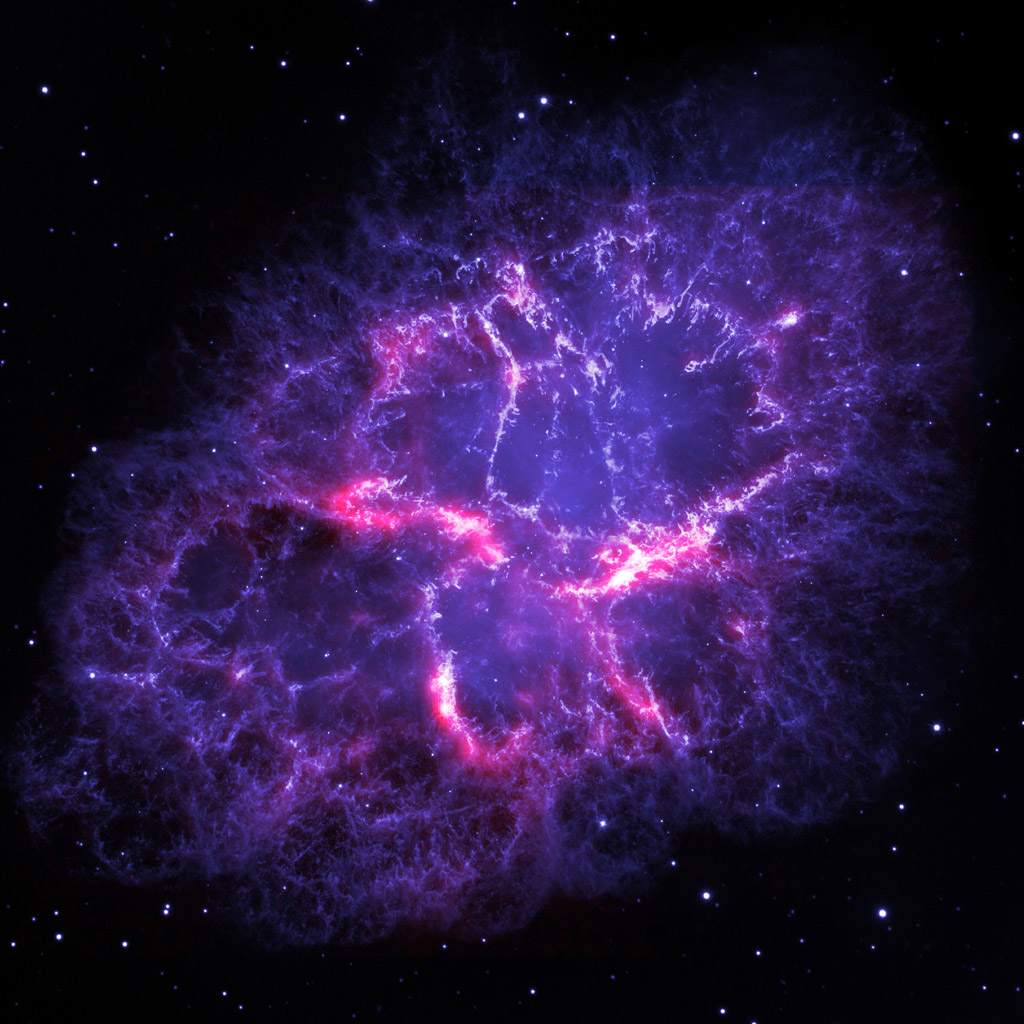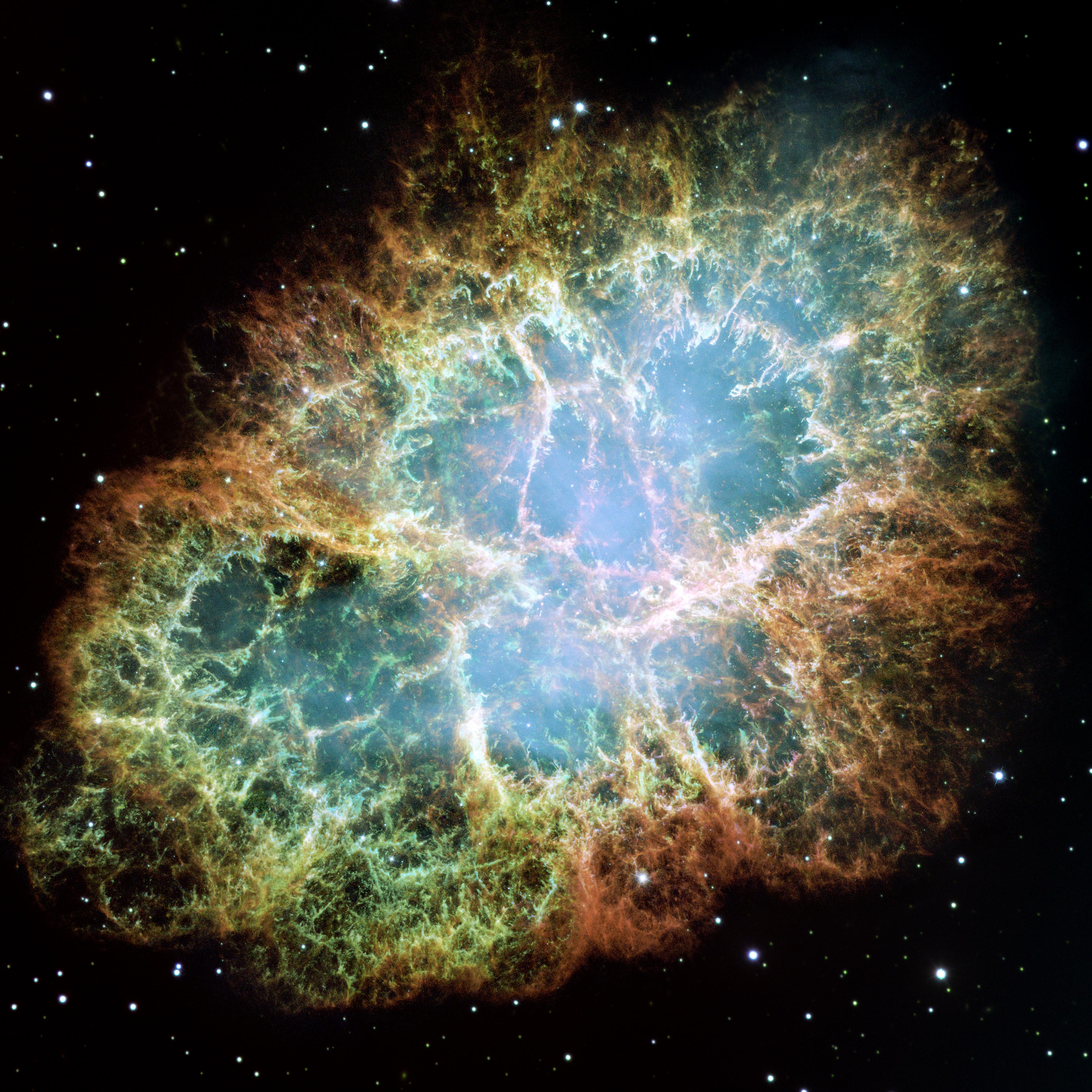 |
| Crab Nebula, The Iconic Supernova In Milky Way |
Nova
 |
| Nova Sagittarii |
The theory suggests that nova events occur as a result of re-lit stars after a long sleep, Nova is thought to occur on the surface of a white dwarf in the adjacent dual star system. The pair is a red giant star whose jejarkan expands so much that there is material flow to the white dwarf of his partner. The material that is still rich in hydrogen reaches the surface of a very hot white dwarf then triggered an explosion on the surface of the star suddenly luminous. That's why astronomers in the past said the suddenly luminous star was called a new star.The last nova that humans can observe on earth is the nova delphini that occurs in the constellation Delphinus
Supernova
 |
| Supernova Explosion |
What is a supernova? Supernova is a big star explosion event from nova. Supernova billions of times brighter than nova and is known as one way stars to end his life. The strong light enhancement is approximately 8x larger than nova. Supernova as a star explosion event has 2 types, one of which resembles nova and involves a white dwarf star. Cerlang supernova can 8 magnitudes larger than nova. Both types of supernovae are Type 1a and Type II.
Type Ia, which is the type of explosion that occurs in a double star system, in which a white dwarf stares the material from its partner star. The astronomers are still debating what kind of star form a pair of white dwarfs can create the explosion of a star type Ia. But, based on the theory, this paired star can give a large enough mass for a white dwarf so that the core of a white dwarf reaches its critical density. As a result, uncontrolled carbon and oxygen burning triggers the star to explode.
Type II, which is the type of explosion that occurs at the end of the life of the massive star (5- 10 solar masses), when the star runs out of fuel to burn in the star's core. If the star core is massive then there will be a collapse of the star core that triggers a supernova explosion. Super nova this type allows the formation of black holes.
Hipernova
 |
| Hipernova explosion |
The theory of hipernova poses several possibilities. First, hipernova is a massive massive starburst that spins very fast and has a very large magnetic field. Another explanation states that a hypnova occurs when one star in a double star collides and joins its partner.Although it is not yet certain which exact but definite process can be known only the formation of black holes and the release of enormous amounts of energy in the form of gamma rays.
Gamma rays are a very energetic form of light that has 10,000 to 10 million more energies than the light that the eye sees. Hence the current hipernova is associated with a gamma-ray burst (GRB) that emits very strong electromagnetic radiation with a far greater total energy than a supernova. Long duration GRB has a terrible explosion that shot into space, from the poles of the transient accretion disk formed around the black hole at the heart of the collapsing core of the star. GRB short duration that also creates a powerful explosion into space, is believed to be the result of a combination of two neutron stars or the joining of neutron stars with black holes. Intrinsically this GRB is much more luminous than a supernova.
Briefly, the so-called collapsar hipernova is a very luminous gamma-ray burst that occurs from the massive collapse of the star's core.Hipernova itself has found its footprint on the MF83 and NGC5471B, which is in the spiral galaxy M101. Additionally the hipernova trail was also discovered in 2002 in M74 when one of the massive stars exploded Gamma ray burst. GRB 030329, seen in 2003 is also known to have a spectrum that matches the characteristics of hipernova. GRB occurring at a distance of 2.6 billion light years occurred in the Leo Race area and observed by NASA's High Energy Transient Explorer (HETE-II).One of the stars suspected to be ending up as a future hipernova is the star of Eta Carina in the constellation Carina.

0 comments:
Post a Comment